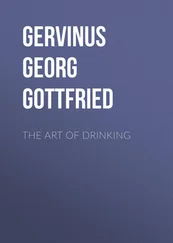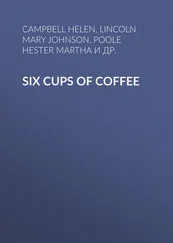THEY SAT in Shakuji-koen Park, dazed with the sunlight, surrounded by an autumn of yellow ginkgo trees. For the most part, the sky was gray, shot through with fibrous clouds. The Japanese families sat like cookies arranged on a plate. The son of the family closest to them was as bronzed as Dina, a holdover tan from the summer. He bit into the kind of neat, crustless sandwiches Dina had seen mothers unwrap at Summerland. The girl was singing while her mother was talking to another mother, who agreed, “ Ne, ne, ne! ” as she bounced a swaddled baby on her hip. The father dozed off on a blanket of red and white squares.
The boy nibbled at his sandwich as the five of them watched. When the boy saw the foreigners staring at him, at his sandwich, he ran to his sister and pointed. Five gaijin , all together, sitting Buddha-like. The boy looked as though he wanted to come right up and ask them questions in the monosyllabic English he had learned from older boys who had spoken to gaijin before. Do you have tails? If so, would you kindly show them to me and my sister? Do you come out at night and suck blood? He would look at Dina and ask if the color rubbed off. He wanted to ask them these questions and more, if his limited English permitted, but the girl had enough shyness for the both of them, and held him back, a frightened smile on her face.
Ari took out the crackers, the cheese with the hard ends, the paprika, the salt, and the plum.
“I lost my job,” he said.
Quietly, shamefully, they mustered out their Sorrys . She’d expected him to lash out, tell all of them to leave, but he didn’t.
“I’ll pay you back,” Dina said, “every penny.”
“You mean yen,” Ari said.
They ate the crackers with sliced plum and cheese on top. Then Petra spoke.
“I do not like cheese,” she said. Everyone looked at her, her pouting lips and unblinking eyes. Zoltan clenched her arm. Petra had taken her slices of cheese off her sandwiches and Zoltan grabbed the slices with one fist and thrust them at her. They fell humbly into the folds of her shirt.
“You don’t have to eat them,” Ari said. But Petra knew she had to eat the cheese, that the cheese mattered. She ate it and looked as if she might cry, but didn’t. They sat for a while. The food melted in Dina’s stomach just as the sunset melted, their synchronized fading seeming to make the whole world go dimmer and volumeless. Then she felt a sharp pain, as though the corners of the crackers had gone down her throat unchewed. None of them spoke, and that seemed to make the pain in her stomach worse. They watched the people and the lake and the sun, now only a thread of light.
“Look,” Sayeed said.
Geese. Stretching their necks, paying no mind to humans. Zoltan bolted upright from where he lay and ran after them. For a few moments, the geese flew hysterically, but then landed yards away from him, waddling toward escape, all the while snapping up bits of crackers the Japanese had thrown just for them. When Zoltan started the chase anew, Dina realized he was not after the crackers but the geese themselves. She imagined Zoltan grabbing one of the thin, long necks, breaking it with a deft turn of wrist. And what would all the Japanese, quietly sitting in the park, make of it all? She skipped over that scene, speeding ahead to the apartment, everyone happily defeathering the bird, feathers lifting and floating then descending on their futons and blankets, the down like snow, the underfeathers like ash. They’d land on Petra’s trunks, empty now that all her clothes had been sold, and they’d land on the tea table at which they used to eat. They would make a game of adjusting the oven dials, then wait out the hours as the roasted gamy smell of the goose made them stagger and salivate. And there would be a wishbone, but it wouldn’t matter, because they’d all have the same wish.
Zoltan ran as haphazard as a child chasing after them, and when he seemed within grasp of a few tailfeathers, the geese flew off for good. When he returned, he dusted off the blanket before sitting down, as though nothing had happened.
All Japanese eyes were on them, and it was the first time Dina thought she had actually felt embarrassment in the true Japanese sense. Everyone was looking at them, and she’d never felt more foreign, more gaijin . Someone laughed. At first she thought it was Sayeed, his high-pitched laughter that made you happy. Then Dina saw that it was one of the Japanese picnickers. Families clapped, one after the other, cautious, tentative, like the first heavy rains on a rooftop, then suddenly everyone was clapping. Applause and even whistles, all for Zoltan, as though he had meant to entertain them. Ari made a motion for them to stop, but they continued for what seemed like minutes, as if demanding an encore. They did not stop, even when Zoltan nuzzled his head into Petra’s gray corduroy shirt so no one could see him weep.
IT WAS a week after they saw the geese that Ari sliced up the grapefruit and banana into six pieces each. Dina watched them eat. Sayeed, his face dim as a brown fist, took his banana slice and put it underneath his tongue. He would transfer the warm disk of banana from side to side in his mouth until, it seemed, it had grown so soft that he swallowed it like liquid. He nibbled away at half a wedge of the grapefruit, tearing the fibers from fruit to skin with his bitten-down lips. He popped what was left of his grapefruit into his mouth like a piece of chewing gum.
Petra let her slices sit for a while and finally chewed the banana, looking off from the side of her eye as if someone had a gun pointed to her head. She wrapped up her grapefruit slice in a bit of leftover Saran Wrap and went to her corner to lie down.
Zoltan rubbed his eyes, put the banana slice on the flat side of the grapefruit and swallowed them both whole, grapefruit peel and all.
Ari ate his slices with delicate motions, and after he’d finished, smiled like a Buddha.
Dina ate her fruit the way she thought any straightforward, normal American would. She bit into it. One more piece sat on the plate.
“Anybody want that?” Dina asked. No one said anything. She looked around to make sure. No one had changed. She ate the last piece, wiped the grapefruit juice from around the corners of her mouth, looked at the semicircle of foreign faces around her, and knew she had done the wrong thing.
She needed to go to Shinjuku. Once again, she claimed the turnstile wouldn’t issue her a ticket, and although the girl at the counter didn’t look convinced, she gave Dina a ticket. When she got to Shinjuku, it was going on noon. Sararimen hurled by, smiling with their colleagues, bowing for their bosses to enter doors first. Mothers shopped, factory workers sighed, shopworkers chattered with other shopworkers. The secretaries and receptionists — the “Office Ladies”—all freshened their lipstick and straightened their hair-bows. The women in the miniskirts rushed past as though late.
She stood in the Shinjuku station, though she hadn’t ridden the train to get there. She read an old magazine she’d brought along. Finally, a sarariman approached her.
“Verrrry sexy.”
HE PAID for the love motel with a wad of yen. “CAN RENT ROOM BY OUR!” screamed a red-lettered sign on the counter. Dina ascended the dark winding staircase, the sarariman following. The room had only a bed and a nightstand, though these simple furnishings now seemed like luxuries. He watched her undress and felt her skin only after she’d taken everything off. He rubbed it as if he were trying to find something underneath.
The inside of her closed eyelids were orange from a slit of sunlight that had strayed into the room. The sarariman shook her. She opened her eyes. He raised his eyebrows, looking from Dina to the nightstand. The nightstand had a coin-operated machine attached.
Читать дальше












